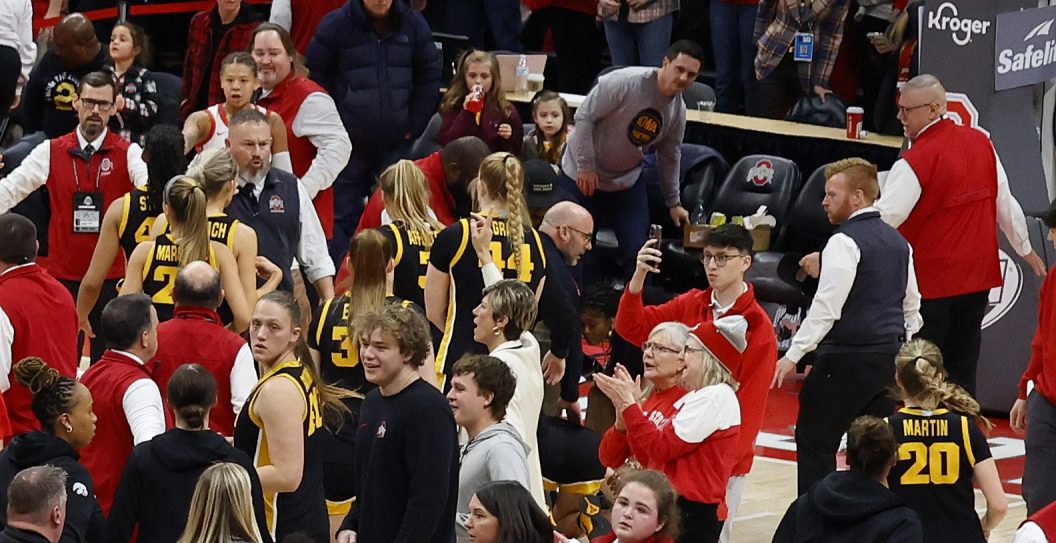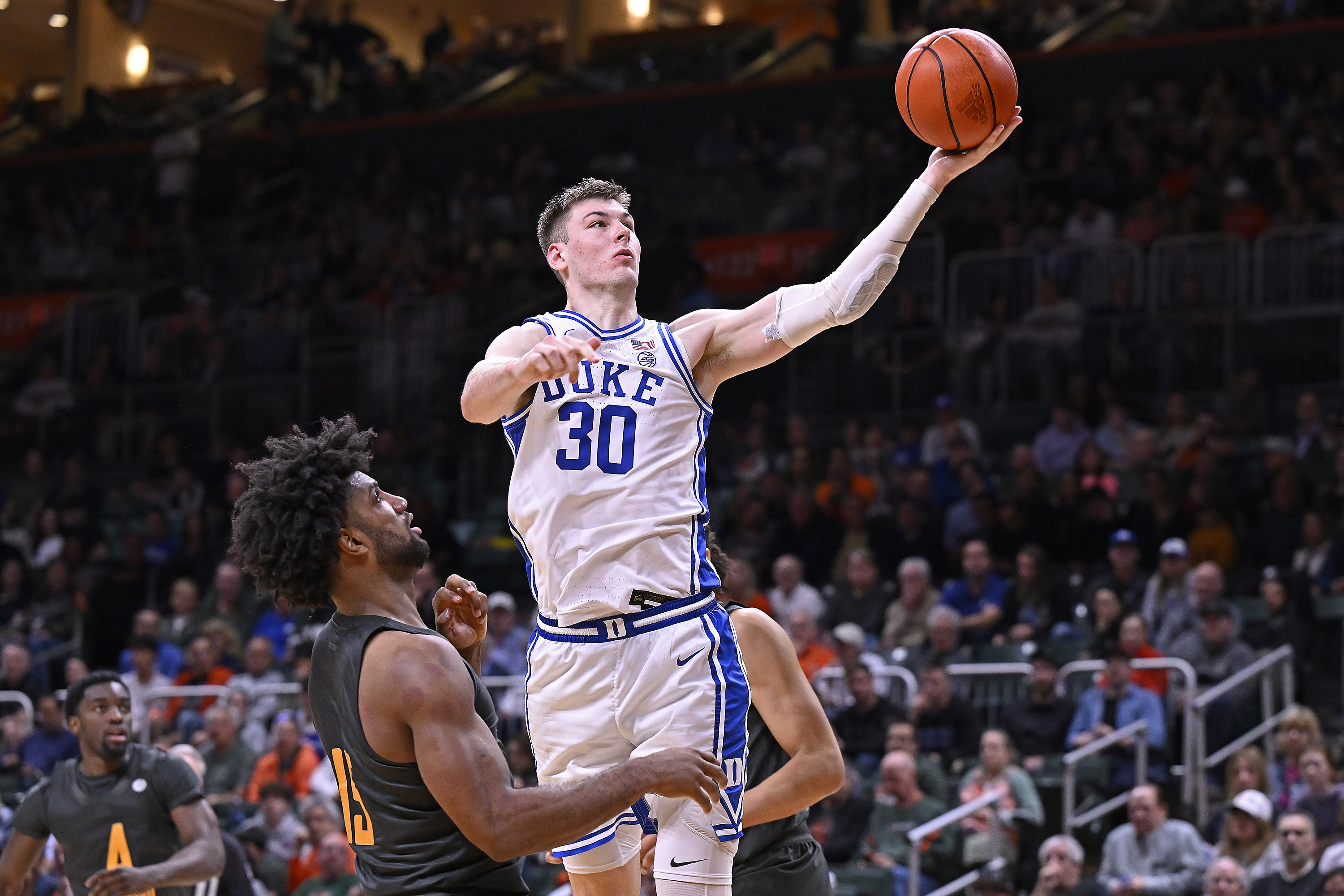Court-storming has been the topic of conversation this week after Duke center Kyle Filipowski got injured in the latest incident, at Wake Forest, and now might have to sit out a few games with an undisclosed leg injury. This also comes shortly after Iowa women's basketball star player Caitlin Clark collided with a fan on the court after a game.
Videos by FanBuzz
Now, court-stormers are facing serious heat as the NCAA looks to fix this developing problem.
How to Fix Court-Storming
College basketball announcers and personalities were quick to tackle the topic, clambering for court-storming to be shut down, enforcement of harsher penalties, and even getting law enforcement involved. Those are all absurd ideas, as they strip away the joy for school fan bases after a momentous achievement. ESPN's Jay Bilas had one of the more outlandish ideas in the wake of Duke's court-storming incident.
Court storming could be stopped as soon as tomorrow, but nothing is going to change… pic.twitter.com/vCsDcb1xwr
— Jay Bilas (@JayBilas) February 26, 2024
However, something must be done, as the safety of the players and coaches should be a priority above everything else.
This is especially true in college basketball, as a basketball court is much smaller than a football field. You've perhaps seen the videos anytime someone upsets Alabama on the gridiron: The crowd is quick to rush the field to celebrate. The benefit that football has over basketball is that the players and coaches have far more room to avoid crazed fans while going back to the locker room.
With that said, there is really only one logical solution to deal with court-storming as well as enhance player and coach safety: Allow players and coaches to get off the court before any storming takes place. It's not as if there's currently a long waiting period for that to happen, as players and coaches quickly greet each other and shake hands as they prepare to walk to the locker room.
In order to enforce that, schools can beef up the security, potentially enforce harsh penalties for students who still don't obey the new policy, and block off lower sections with walls to slow them down. Time and time again, we see camera shots of lackluster security coverage that plainly allows this to happen. A countdown of sorts also could be established ahead of time before big games to keep fans at bay as they eagerly wait for the clock to reach zero.
It's not a perfect solution, but it is far better than getting law enforcement involved and potentially ruining the future of crazed college kids by arresting them. Get the players and coaches off the court first, and then allow the kids to be kids while celebrating with each other. Should they continue to violate the policy, then strip away the privilege of going onto the court after a game, as that would be a direct consequence of their own continued actions.

